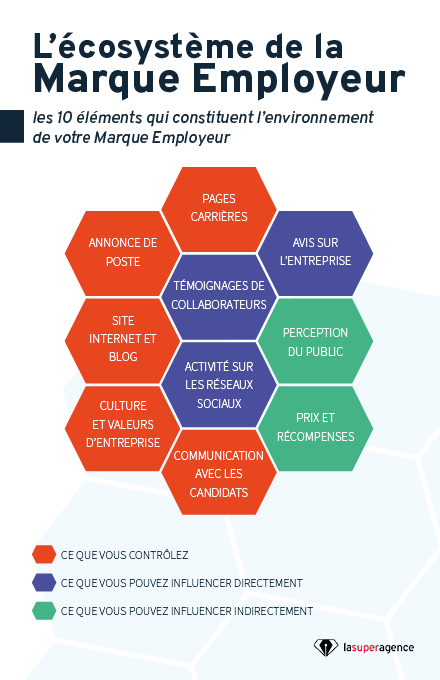The employer brand is not a recent concept. It was first mentioned nearly twenty years ago, in 1996, by Simon Barrow and Tim Amler in the renowned Journal of Brand Management. Yet, it sometimes feels like something totally new in France. In many cases, this means that it is a concept misinterpreted and misapplied.
 The concept of employer branding has been around for a long time
The concept of employer branding has been around for a long time
Here are the 8 most common mistakes made about your employer brand that deserve clarification or risk causing dissonance in your message.
Myth #1 - All you need is a good product to have a good employer brand
Many leaders believe that with a good product, or a leading position in its market, candidates are naturally tempted to join their company.
A certain prestige is certainly favorable to a good employer brand image, but there is nothing systematic.
Take Amazon as an example: the brand is unavoidable in e-commerce.
And yet, its employer brand image really isn't good, largely due to a wave of criticism suffered in 2015 decrying endless hours and poor treatment of employees.
Myth #2 - The employer brand comes down to good pay and perks
While good pay and pleasant working conditions are important to your employer brand, they are not enough to define it.
A company's good reputation as an employer rests on more than that. Respect for your customers and employees are part of what makes your company valued.
 You must respect your employees to develop a strong employer brand
You must respect your employees to develop a strong employer brand
Myth #3 - Its purpose is simply to attract candidates
Developing your employer brand is about understanding which candidate profile will be most successful at the company to help it get there.
Cel offers the ability to detect the right candidate for the company from a pool of excellent profiles.
Myth #3 - Its purpose is simply to attract candidates
Developing your employer brand is about understanding which candidate profile will be most successful at the company to help it get there.
Cel offers the ability to detect the right candidate for the company from a pool of excellent profiles.
Nowadays many companies rely on workplace wellness labels like Great Place to work, Top employer, Most Attractive Employer to make sure they have a good reputation.
More and more overused, these labels are always losing a little more credibility. They are no longer a guarantee of quality as multiple badges are displayed in the banner of many companies. On the contrary, an employer brand is completely unique (and requires more involvement from the company).
The communication operations essential to the development of the employer brand are to be differentiated from the Talent brand, which is the truly perceived image of candidates and employees (found on Glassdoor pages or in Google reviews).
Myth #5 - It can be developed by HR, without involving employees
For your employer brand to be meaningful, you need the active involvement of your employees, who are best able to communicate the company's values. These are known as employer brand ambassadors.
Give them a voice through testimonials and assign them an important role in onboarding new recruits.
Note that it's also relevant to collaborate with the Marketing department, especially if you want to engage in Inbound Recruiting.
Myth #6 - It can be built independently of your company culture
If your company values display integrity as a defining element, then integrity should also be in your employer brand values.
Myth #7 - It's only about recruitment
Your employer brand values must infuse all departments of your company and not just stop at the doors of the HR department.
Always in the interest of consistency, the experience you offer candidates, must also be put into practice once they take on their new role.
Myth #8 - Employer brand can go without a good candidate experience
From the moment the passive candidate is first exposed to your employer brand to the moment they leave their resume on your application management interface, you need a consistent experience throughout their user-applicant journey.
Writing a few slogans and posting signs on company walls will not be enough to build a strong employer brand.
Your actions in this area are worth more than your words.









